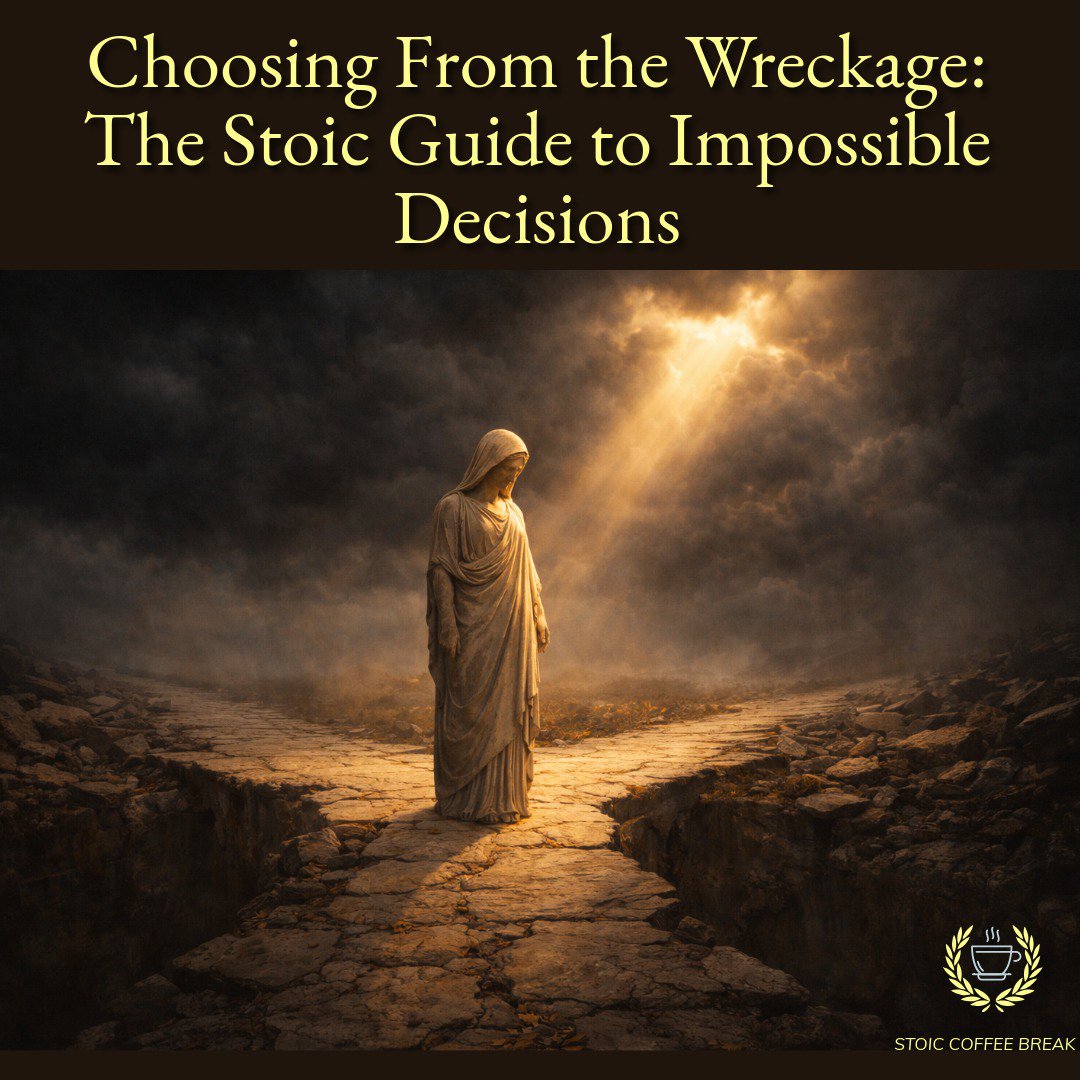
“Give yourself fully to your endeavors. Decide to construct your character through excellent actions and determine to pay the price of a worthy goal. The trials you encounter will introduce you to your strengths.”
— Epictetus
The unglamorous, most powerful way to accomplish your goals and becoming the person that you want to become.
One thing that fascinates me about humans is our desire to find the easy way to do almost anything. So many of the things that we think of as necessities in our modern lives are simply things that make our lives easier. Things like dishwashers, microwaves, and email. All things that help us accomplish things that would otherwise take much longer to accomplish. Washing dishes or clothes by hand, while not exceptionally difficult, nonetheless take up quit a bit of time. Microwaves cook our food in less than half the time of traditional cooking. Dashing off an email takes far less effort than writing and mailing a letter.
None of these things are good or bad. They are simply tools to accomplish things in a shorter span of time. But just like everything, it comes with a cost. As we get used to the comfort and ease these tools bring to our lives, it gets easy to become complacent. We get used to things being easy and instant. We get bored if we’re not entertained. We find it hard to focus on and accomplish things that we want to. We get distracted by all the new and shiny things. We find it challenging when things are hard and take time.
Do you want to accomplish your goals? Do you want have more motivation throughout your day? Do you want to grow more as a person? If there is one thing that you can do in life that will help you to accomplish your goals in life, it is this:
How willing you are to do hard things, and how willing you are to suffer to accomplish them.
Why Do Hard Things?
“To make a goal of comfort or happiness has never appealed to me; a system of ethics built on this basis would be sufficient only for a herd of cattle.”
— Albert Einstein
Doing easy things does not bring about much of a sense of accomplishment. It’s when we push ourselves to our edge, challenge ourselves and take on a goal or task that feels risky or scary that’s when we feel alive. When we push through the difficulties and work our way through to the other side, it feels amazing.
If you want to have career success like Hugh Jackman or Steve Jobs, you have to do hard things. You have to get up each day and do the things that others don’t want to. You get up and you go for a run. You get up and go down to the basement and do that workout. You make a plan and follow it. You do the things that others don’t.
A gem cannot be polished without friction, nor a person perfected without trials.”
— Seneca
When it comes to growing as humans, taking the easy way never brings the fulfillment that we need. Personal growth is hard. If you want to be an exceptional human, or even just above average, you have to put in the work. There is no other way around it. You can’t have someone else do the work for you. There is no machine that magically turns you into an awesome person. There are no shortcuts in growing, and remember that it’s the journey, it’s doing the work is the point, not just reaching the destination.
To state the obvious, doing hard things is hard. That’s why everyone doesn’t have a body like Jessica Alba. Not everyone can sing like Kelly Clarkson or play the cello like Yo Yo Ma. It’s hard work.
Death Gives Clarity
The Stoics ask us to reflect on our own mortality. Momento Mori. Remember that we could die at any moment. Why is this important? Why think about death?
1. When we look through the lens of our own mortality, we get a clearer idea of things that are important to us.
2. We stop putting off important things until “later”, because there might not be a “later”.
“Carpe Diem”
— Robin Williams, Dead Poet Society
Let me put it this way…when you get to the end of your life and look back, would you rather reflect on how many hours you spent watching TV, or would you rather reflect on how you were able to grow and strive towards reaching your full potential?
I know for me I want the latter.
Massive Action
Training yourself to be disciplined and dedicated is hard work, but I think that there are two aspects of how to do hard things. Massive action, and small actions.
Brooke Castillo, my favorite life coach, talks about taking massive action. What this means is identifying what is going to move the needle the fastest. When we are able to make some great progress in a short amount of time, we can build up momentum to push through when things get tough.
Often, the massive action doesn’t have to be great, it just has to get done. Maybe something like writing a crappy first draft of a book over a weekend or writing 5 songs in a week regardless of how good or bad they turn out. Maybe it’s slowly walking a 5 miles on a weekend. It doesn’t matter if it’s great the first time. It matters that you took action that moved the needle.
Taking massive action gives you something to hold onto that helps keep you moving forward. In our example of the crappy first draft . If you have a crappy first draft of a book, you have something to work with. You have a foundation to build off of.
A good example of massive action in my own life is this podcast. My massive action was that I put out an episode every day for the first 137 days, a feat which still surprises me. I did slow down over time because what I wanted out of the podcast changed. I wanted to go a little deeper into each topic, and make it a little longer. I also wanted to spend time with my friends and family, so slowing the pace was necessary. But having created a large body of work made it easier to return to creating episodes after taking a break for over year.
Small Actions
“I fear not the man who has practiced 10,000 kicks once, but I fear the man who has practiced one kick 10,000 times.”
— Bruce Lee
In 2003, I was watching the Ironman Triathlon broadcast from Hawaii. Now if you’ve never seen the Ironman, it’s pretty badass. It starts with a 5 mile open water swim, a 122 mile bicycle ride, and a full 26 mile marathon at the end. Finishing one is the probably the hardest sporting challenge a person can accomplish.
At the time, I was overweight, in terrible shape, and not very happy with my health. Watching the Ironman inspired me. Seeing the dedication and dogged persistence that those people, many of them just regular people and not professional athletes, lit a fire in me.
Over the next two years, I dedicated myself to training for triathlons. I started out small, just running for 15 minutes a day around my neighborhood. I was exhausted, my legs hurt, and my lungs burned, but I felt more alive than I had for years.
I started swimming at my gym. I would do 5 painfully slow laps per session. Over time I built up to 20 laps in the same amount of time.
I enrolled in spin classes and later bought my first road bike. As time went on, I found a passion for cycling and changed my focus. At my peak I was putting in around 200 miles a week on my bike and completed several century rides – rides of 100 miles. I also lost 55 lbs.
The most important lesson I learned from my years of cycling, is that consistency is king. If we want to actually finish what we start, we must become a master at building habits. Doing a small “hard thing” every day helps us get used to struggling. We get used to suffering for the things we want. That hard thing will be different for each person. It can be something that supports you in your goals or not, but it has to be something that challenges you. I should also be something that starts small and you do it every day until you don’t have to think about whether you should or shouldn’t. You just do it.
For example, say that you want to get up each morning and workout. If you get up on your first day and do a 60 minute workout after not having worked out for years, you’re setting yourself up for failure. You’ll be sore for a few days. You might resent how much time it takes, so remember to start small. Maybe on your first week, you get up and stretch for 5 minutes, do 10 push ups, and 10 sit ups. The next week, you might bump that up to 15 pushups, 15 sit ups. The next week you might add in some pull-ups or some free weights. The point is that you do it every day.
Once you have one habit that you do every day, add another. Then another. Soon you have a day that is a stack of habits of your choosing.
Feeling accomplished at cycling helped me feel more confident overall and willing to try other things that I might have felt were to scary or risky before. I also found that I was better able to create and keep helpful habits. Now that I’ve been out of cycling regularly, I miss that fire and drive. I’m also about 30 lbs overweight and I’m not happy with where my health is. I wrote this episode for me because I want to get back to doing hard things.
Process
An important aspect to remember about this are that you shouldn’t wait to feel motivated to start something. If you wait to “feel motivated”, you may never get it done. Take the feeling out of it.
Like we talked about last week:
“You can endure anything your mind can make endurable, by treating it as in your interest to do so.”
— Marcus Aurelius
So if motivation is not what’s going to help us achieve things, what will?
Process. Process is greater than motivation. Motivation comes from momentum, and your process is what helps you create momentum. When you create a defined process, you have a clear step by step guide that makes it easy to know what you need to do to accomplish your goal. Creating a process also helps you anticipate roadblocks and plan around them, which removes a lot of fear and anxiety that pops up when we set out to do hard things.
Do you want to be a good writer? You get up everyday and you write. You remove the distractions. You close you browser and silence your phone and you write. Then you do the next day, and the day after that. Even if you don’t have anything to write about or that you think is any good, you write and you edit and you write until you start to find your voice. You practice your craft every day. You do the hard things.
You want to be a great singer? Then you practice everyday. You do your scales every day. You sing the same song over and over until you know it so well that you almost hate it. You listen to your singing coach and follow their instructions. You do the hard things.
Want to have a better relationship? You have to do all the small things every day. You have to communicate with your partner. You have to consider their needs along with your own. You have to set healthy boundaries for yourself, and respect theirs. You have to put in the work. Just putting in the minimum, or “phoning it in” as they say, won’t get you there. You don’t build a strong and healthy relationship without effort. You do the hard things.
Doing hard things is a core and fundamental piece to accomplishing anything worthwhile. It helps to give our lives meaning, and creates a sense of accomplishment. The next time you face a particularly scary challenge, don’t turn away because it’s not easy, rather turn into it because it’s hard.
Be awesome and support this podcast by becoming a patron!



